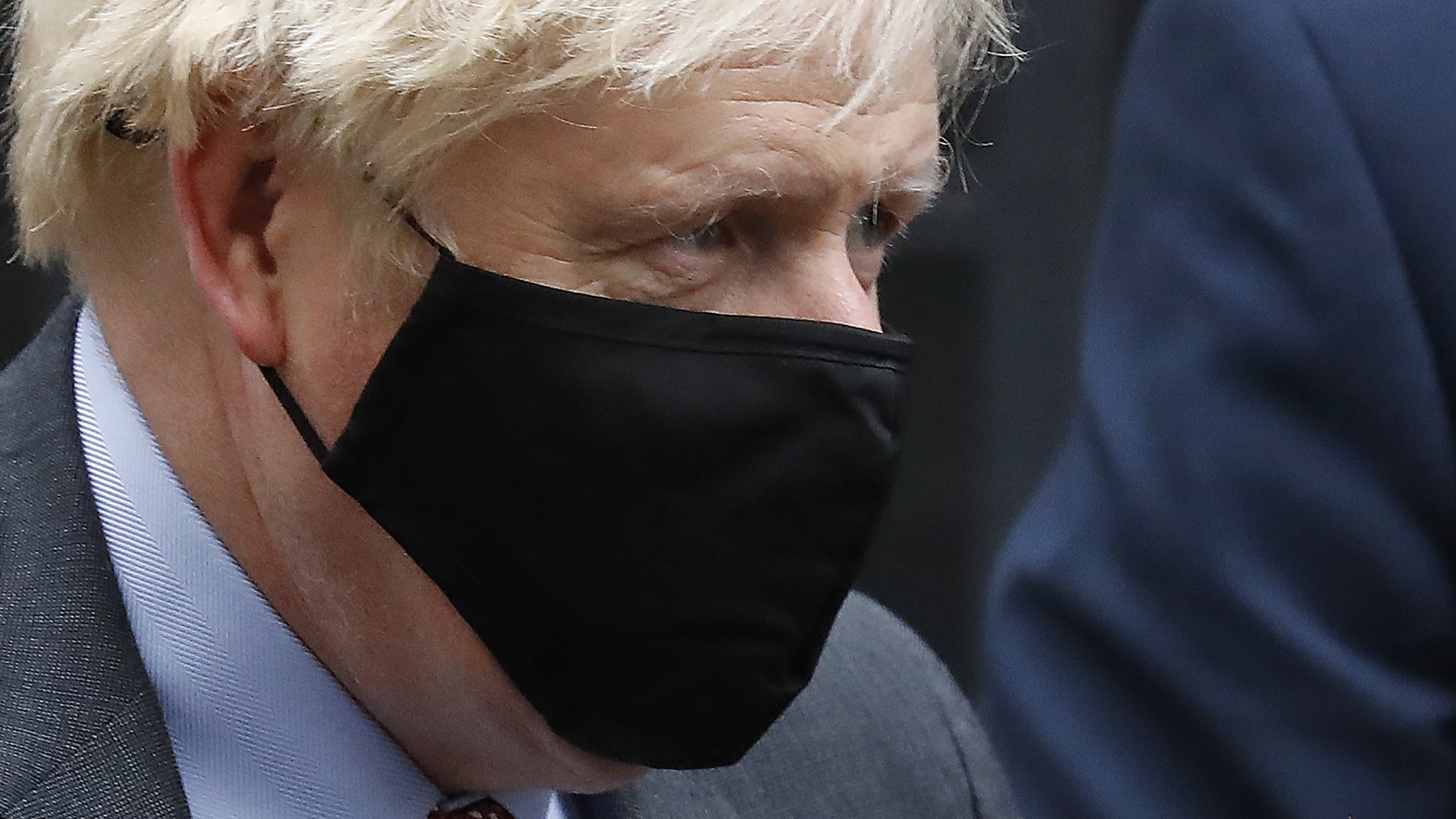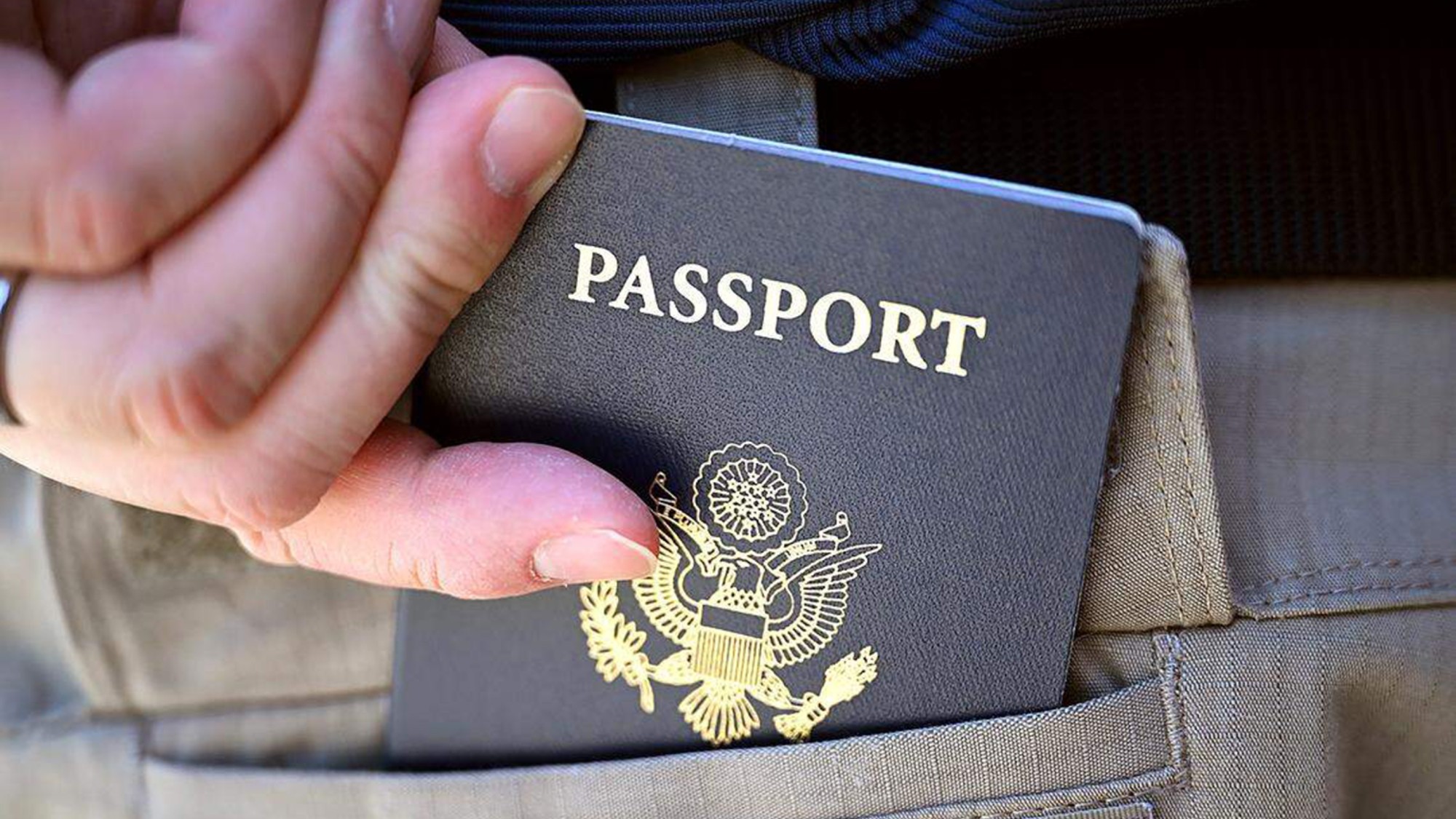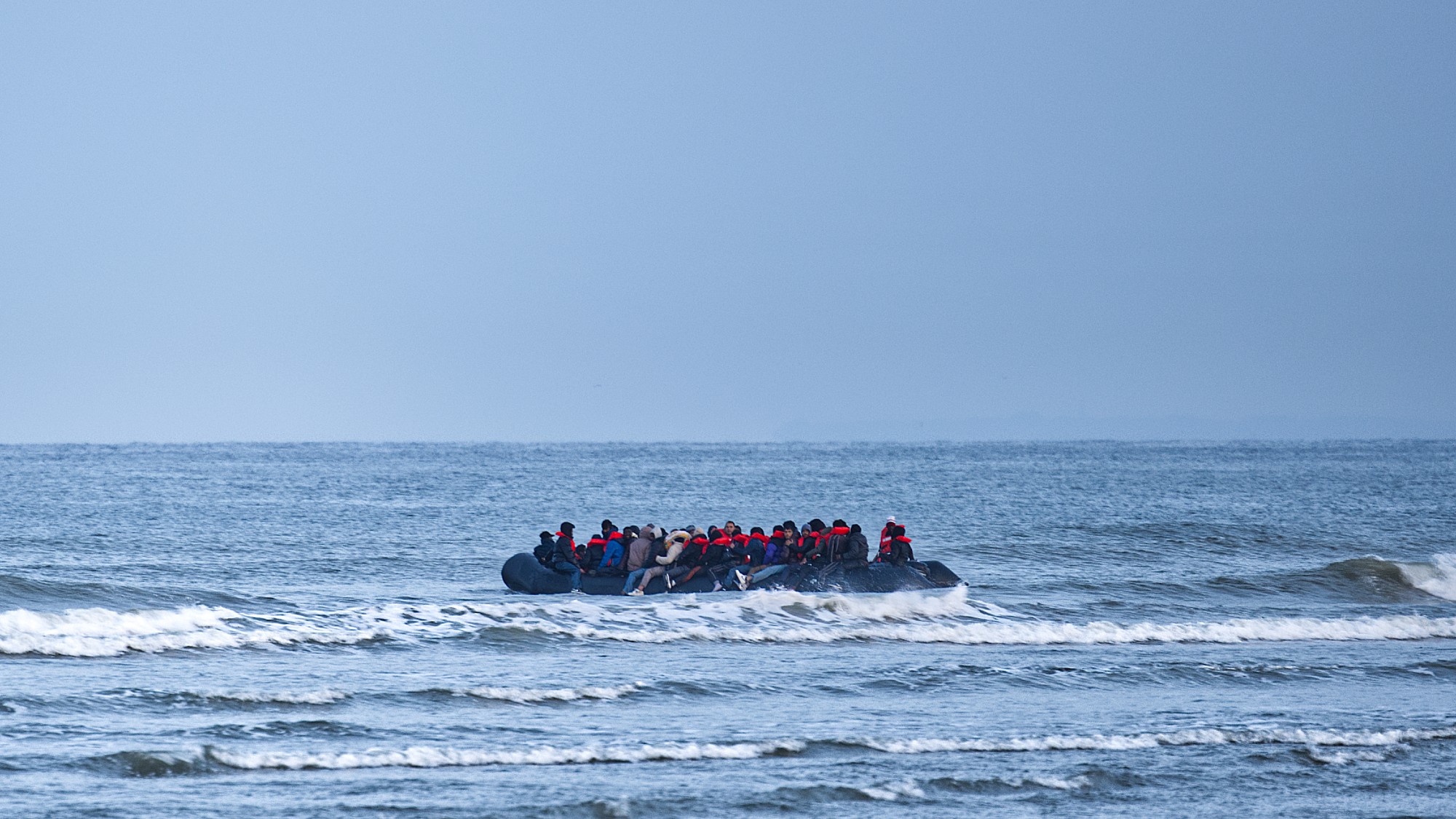Everything you need to know about Boris Johnson’s offshore migrant detention plans
Flurry of leaks reveal government is considering a series of ideas to reform asylum screening

A free daily email with the biggest news stories of the day – and the best features from TheWeek.com
You are now subscribed
Your newsletter sign-up was successful
Migrants seeking asylum in the UK could soon be met with an altogether different greeting, according to a series of government leaks revealing the brainstorming behind planned reforms.
Following the revelation that Priti Patel looked into setting up migrant centres on two distant British territories, a sequence of briefings to journalists have revealed plans ranging from “floating asylum centres” to sending migrants to Moldova for processing.
Politico’s Alex Wickham writes that the deluge of sensitive leaks have set off “strong condemnation from critics of the blue-sky proposals”, as well as a “frenzied Whitehall blame game”. Here’s a guide to the unfolding saga.
The Week
Escape your echo chamber. Get the facts behind the news, plus analysis from multiple perspectives.

Sign up for The Week's Free Newsletters
From our morning news briefing to a weekly Good News Newsletter, get the best of The Week delivered directly to your inbox.
From our morning news briefing to a weekly Good News Newsletter, get the best of The Week delivered directly to your inbox.
Origin story
Late on Tuesday night, the Financial Times revealed that Patel had asked officials to explore sending asylum seekers to isolated islands in the south Atlantic, 4,000 miles from the UK.
The plan, condemned as “inhumane, completely impractical and wildly expensive” by Labour shadow home secretary Nick Thomas-Symonds, would see migrants transferred to Ascension, an isolated volcanic British territory, and St Helena, which is part of the same island group but 800 miles away.
Allies of the home secretary were quick to tell the FT that the suggestion was not going ahead, but Patel is not the only minister in government throwing around suggestions for reforming the UK’s asylum policy.
A free daily email with the biggest news stories of the day – and the best features from TheWeek.com
Downing Street has reportedly asked officials to look into the possibility of sending asylum seekers to Moldova, Morocco or Papua New Guinea for screening and is the “driving force behind proposals to hold refugees in offshore detention centres”, The Guardian says.
Documents seen by the paper - marked “official” and “sensitive” - reveal that “officials in the Foreign Office have been pushing back” against No 10’s proposals, but suggest that the government has “for weeks” been working on plans for overseas detention.
The document includes cost estimates of building asylum camps and make reference to a plan that would involve moving asylum seekers “who have arrived in the UK and are firmly within the jurisdiction of the UK for the purposes of the ECHR and Human Rights Act 1998”, the paper adds.
Floating ideas
If reports of Patel’s pitch earlier in the week set the cat among the pigeons, the new leaks reveal the depth of interest in an outsourced approach to asylum processing.
Downing Street has also considered screening claimants on “disused ferries moored off the coast”, with officials also holding “discussions about moving migrants to decommissioned oil platforms in the North Sea for processing”, The Times says.
While the latter was considered a “no-go”, the former plan - to “buy retired ferries and convert them into asylum-processing centres” - has not been taken off the table, the paper adds.
Described as a “favoured option on a list that will be presented to the prime minister”, the ferry-approach will be listed alongside a suggestion to “building a processing centre on a Scottish island”, The Times’ deputy political editor Steve Swinford says.
Political pressure from Nicola Sturgeon and the Scottish National Party is thought to be a flaw in that plot.
Island isolation
Further complicating the matter, Daily Mail home affairs correspondent David Barrett suggests that an asylum processing centre could be built on the Isle of Wight, the Shetlands or the Isle of Man.
Officials were “ordered to draw up feasibility studies for the hostel-type centres on islands within the British Isles”, which Barrett says is considered more practical than Patel’s notion of building the centres 4,000 miles from Britain in the south Atlantic.
Politico’s Wickham says one plan that is “definitely not happening” is another leaked suggestion in the FT for “boats with pumps generating waves that would force boats back into French waters”.
This plan was shelved after “concerns were raised about the risk of capsizing migrants in already-overladen boats”, however, it is thought that a separate plan to “lay booms or barriers in parts of the Channel” is still under consideration.
Asylum leakers
The leaks emanating from Whitehall has got people wondering where the flow of evolving - and abandoned - policies is coming from.
After speaking to ministers and officials in the Home Office and other government departments, Wickham writes that they are “all blaming each other - and getting extremely angry about it”.
A spokesperson for the prime minister said the government is “developing plans to reform our illegal migration and asylum policies so we can keep providing protection to those who need it, while preventing abuse of the system and criminality”.
The spokesperson added: “As part of this work we’ve been looking at what a whole host of other countries do to inform a plan for the United Kingdom. And that work is ongoing.”
And the plan has not sprung a leak in support from Conservatives. According to a survey from YouGov, 40% of the public supports the proposal for a centre in the south Atlantic - including 62% of Tory voters.
Tried and untested
However, the government may come unstuck when blue sky ideas meet cold reality.
In the early 2000s, Tony Blair’s government looked into building offshore processing centres - specifically considering Tanzania - but abandoned the plans as unfeasible.
Colin Yeo, an immigration barrister and author on asylum law, told the FT that the government may also find itself on shaky legal territory if it attempts to go through with any of the plans.
“If you intercept people and you remove them, the Refugee Convention prohibits you from indirectly returning them to their country of origin,” Yeo said.
“If you take them somewhere like north Africa, you have to guarantee that they won’t send them back to their country of origin because you’re just not allowed to do that.”
Joe Evans is the world news editor at TheWeek.co.uk. He joined the team in 2019 and held roles including deputy news editor and acting news editor before moving into his current position in early 2021. He is a regular panellist on The Week Unwrapped podcast, discussing politics and foreign affairs.
Before joining The Week, he worked as a freelance journalist covering the UK and Ireland for German newspapers and magazines. A series of features on Brexit and the Irish border got him nominated for the Hostwriter Prize in 2019. Prior to settling down in London, he lived and worked in Cambodia, where he ran communications for a non-governmental organisation and worked as a journalist covering Southeast Asia. He has a master’s degree in journalism from City, University of London, and before that studied English Literature at the University of Manchester.
-
 How the FCC’s ‘equal time’ rule works
How the FCC’s ‘equal time’ rule worksIn the Spotlight The law is at the heart of the Colbert-CBS conflict
-
 What is the endgame in the DHS shutdown?
What is the endgame in the DHS shutdown?Today’s Big Question Democrats want to rein in ICE’s immigration crackdown
-
 ‘Poor time management isn’t just an inconvenience’
‘Poor time management isn’t just an inconvenience’Instant Opinion Opinion, comment and editorials of the day
-
 How corrupt is the UK?
How corrupt is the UK?The Explainer Decline in standards ‘risks becoming a defining feature of our political culture’ as Britain falls to lowest ever score on global index
-
 The Mandelson files: Labour Svengali’s parting gift to Starmer
The Mandelson files: Labour Svengali’s parting gift to StarmerThe Explainer Texts and emails about Mandelson’s appointment as US ambassador could fuel biggest political scandal ‘for a generation’
-
 Businesses are caught in the middle of ICE activities
Businesses are caught in the middle of ICE activitiesIn the Spotlight Many companies are being forced to choose a side in the ICE debate
-
 Three consequences from the Jenrick defection
Three consequences from the Jenrick defectionThe Explainer Both Kemi Badenoch and Nigel Farage may claim victory, but Jenrick’s move has ‘all-but ended the chances of any deal to unite the British right’
-
 The high street: Britain’s next political battleground?
The high street: Britain’s next political battleground?In the Spotlight Mass closure of shops and influx of organised crime are fuelling voter anger, and offer an opening for Reform UK
-
 US citizens are carrying passports amid ICE fears
US citizens are carrying passports amid ICE fearsThe Explainer ‘You do what you have to do to avoid problems,’ one person told The Guardian
-
 The MAGA civil war takes center stage at the Turning Point USA conference
The MAGA civil war takes center stage at the Turning Point USA conferenceIN THE SPOTLIGHT ‘Americafest 2025’ was a who’s who of right-wing heavyweights eager to settle scores and lay claim to the future of MAGA
-
 ECHR: is Europe about to break with convention?
ECHR: is Europe about to break with convention?Today's Big Question European leaders to look at updating the 75-year-old treaty to help tackle the continent’s migrant wave